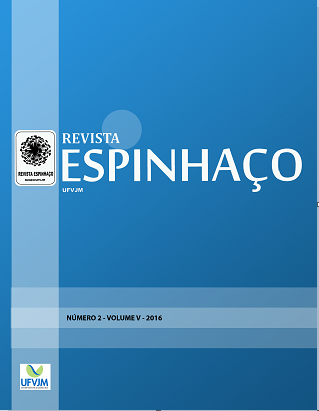Gender mainstreaming in Sudan under climate change stresses: gaps and ways forward
DOI:
https://doi.org/10.5281/zenodo.3956730Keywords:
gender, climate change stresses, SudanAbstract
This study investigates the level of gender mainstreaming on planning and implementation of activities within number of governmental, nongovernmental and academic organizations in Sudan. Gender mainstreaming is the process of assessing the implications for women and men of any planned action including legislation policies or programs in all areas and at all levels. Organizations included on this research are entities that mainly involved on natural resources management disciplines, humanitarian activities, and academia. The problem stated on this study stemmed on the fact that information on agriculture and natural resources management domain including farming, forests, range management, livestock production is not disaggregated by sex, while climate change stresses on natural resources and agriculture compounds the vulnerability of women in use and management of natural resources. The methodology used on this study was purposive sampling using semi structured interviews to elicit information from selected organizations within Khartoum City the capital of the Sudan. The study revealed that there is lack of knowledge on gender concepts and lack of skillful expertise within some of the studied organizations and thus gender mainstreaming is not fulfilled yet. It also showed that there are either no regulations or no commitment to regulations on gender policies within the studied organizations, therefore, gender policies on domain of agriculture and natural resources management are not formulated. The study concluded that establishment of gender research units within academic institutions is necessary. Those units can be platforms to source and develop knowledge about the role of gender in climate change adaptations, and they also can be linked to decision making processes within institutions involved in natural resources and agriculture, where gender policies, could be developed and applied. Improved policy for natural resources management and agriculture had been suggested to reduce climate stresses on natural resources and agriculture.
References
B Badri. 2001. The gender and women’s Studies Textbook. Ahfad University for women- Omdurman, Sudan.
E Elsiddig. 2014. Ways for post-conflict management of Natural Resources in Sudan: The Case of west Sudan. DAAD Alumnai Workshop. University of KordofanElobied
MB Nimir MB, I Elgizouli. 2010. Climate Change Adaptation and Decision Making in Sudan. World Resource Institute, Washington DC, United States of America www.wri.org/our-work/climate-change-adaptation-and-decesion-making-Sudan access date 9.12.2016
Sh Daoud. 2014. Baseline Studies at the National Level for IGAD Priority Sectors State of Gender Affairs Report in Sudan. Formulation of IGAD Regional Strategy and Medium –Term Plan 2016- 2020.
Unites States Agency International Development 2016. Climate change risk profile fact sheet. www.climatelinks.org/resources/climate-change-risk-profile-Sudan access date 8.12.2016
United Nations 2012: Office of the Special Adviser on Gender Issues Department of Economic and Social Affairs.Two United Nations New York, NY 10017, USA www.un.org/womenwatch/osagi/pdf/e65237pdf
United Nations- Habitat.2012: Compendium of Case Studies on Gender Mainstreaming Initiatives in UN-Habitat. First published in Nairobi in December 2012 by UN-Habitat. Copyright ished in Nairobi in December 2012 bProgramme 2012 https://unhabitat.org/books/acomendium-of-case-studies-on-gender-mainstreaming access date 8.12.2016
Downloads
Published
How to Cite
Issue
Section
License
Copyright (c) 2022 Revista Espinhaço

This work is licensed under a Creative Commons Attribution-NonCommercial-NoDerivatives 4.0 International License.


